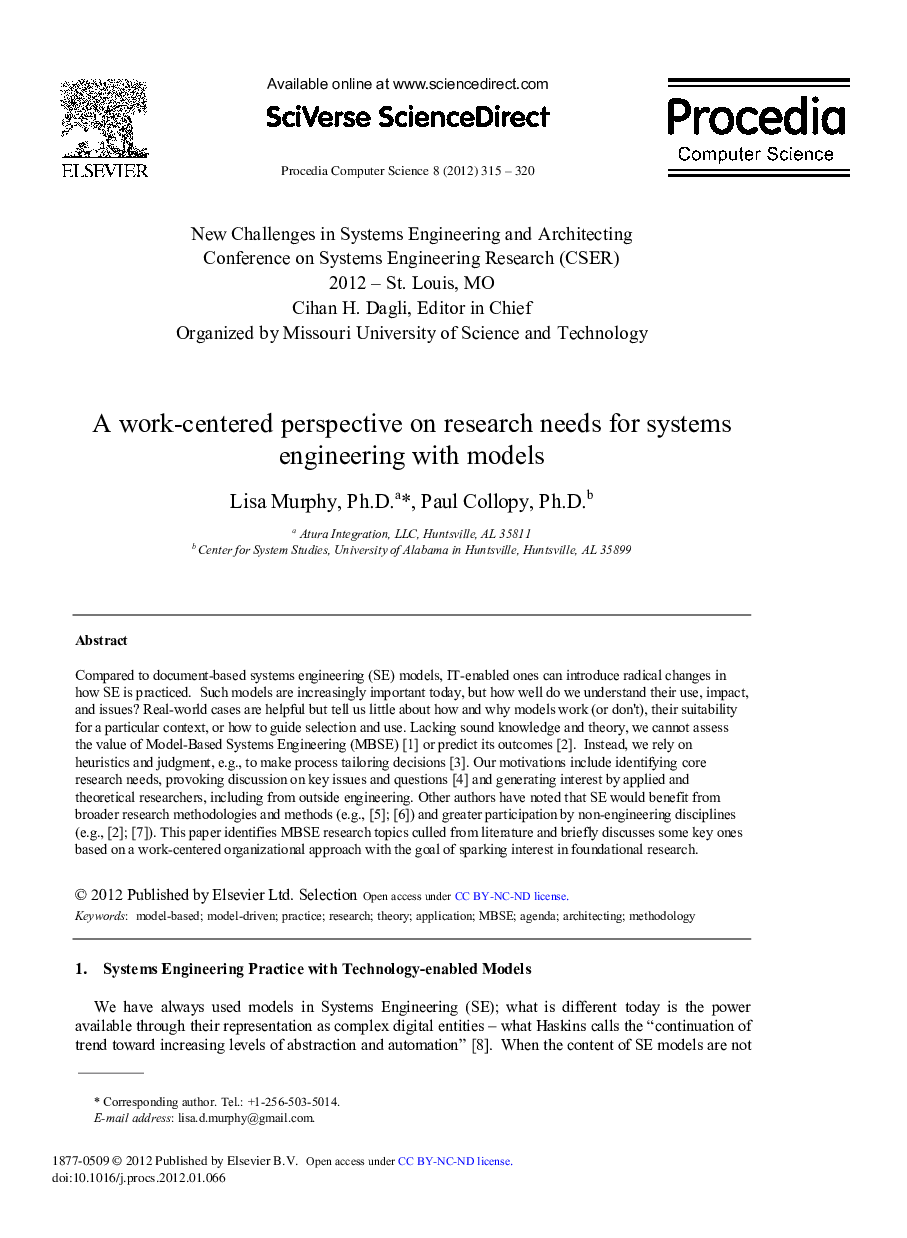| Article ID | Journal | Published Year | Pages | File Type |
|---|---|---|---|---|
| 488102 | Procedia Computer Science | 2012 | 6 Pages |
Compared to document-based systems engineering (SE) models, IT-enabled ones can introduce radical changes in how SE is practiced. Such models are increasingly important today, but how well do we understand their use, impact, and issues? Real-world cases are helpful but tell us little about how and why models work (or don’t), their suitability for a particular context, or how to guide selection and use. Lacking sound knowledge and theory, we cannot assess the value of Model-Based Systems Engineering (MBSE) [1], or predict its outcomes [2], . Instead, we rely on heuristics and judgment, e.g., to make process tailoring decisions [3], . Our motivations include identifying core research needs, provoking discussion on key issues and questions [4] and generating interest by applied and theoretical researchers, including from outside engineering. Other authors have noted that SE would benefit from broader research methodologies and methods (e.g., [5]; [6]) and greater participation by non-engineering disciplines (e.g., [2]; [7]). This paper identifies MBSE research topics culled from literature and briefly discusses some key ones based on a work-centered organizational approach with the goal of sparking interest in foundational research.
